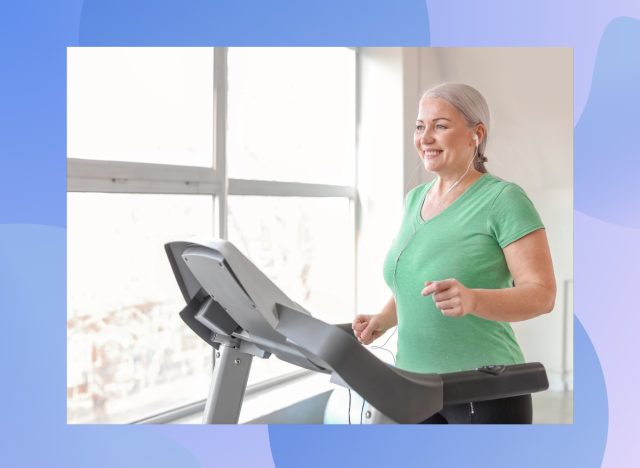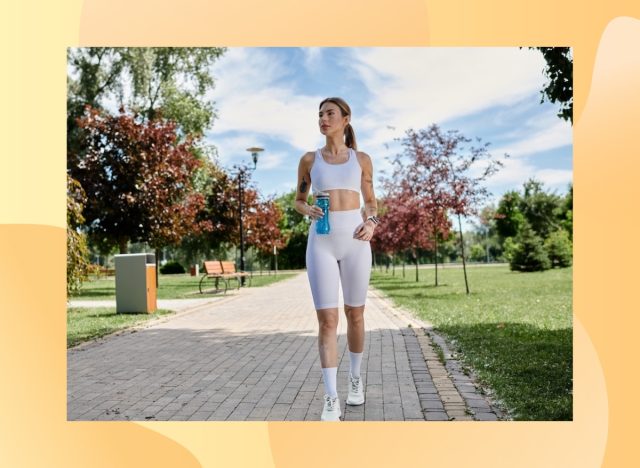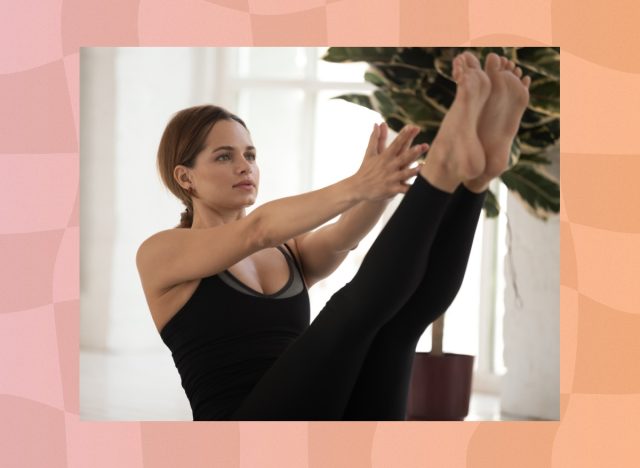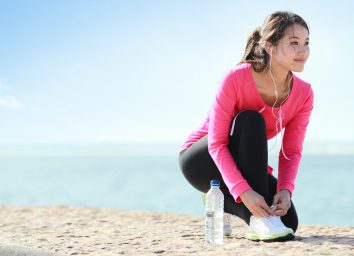Secret Side Effects of Exercise You Didn't Know, Says Scientist

We've reported countless times here at ETNT Mind+Body how studies have linked exercise not only with better physical health but also with stronger mental health. But if you've ever been curious as to what actually happens to your brain when you exercise—how those bouts of walking, hiking, boxing, running, cycling, or any other form of physical fitness directly impacts the gelatinous mass inside your skull—neuroscientist and psychiatrist Arash Javanbakht, MD, of Wayne State University, explains in a new article published in The Conversation. Read on for a few of his revelations. And for more some great ways to squeeze more exercise into your already-busy days, don't miss The Secret Little Tricks for Walking More Every Day, Say Experts.
Exercise Creates New Brain Cells

According to Javanbakht, working out regularly doesn't just make you feel better and lighten your mood, but it also "really does change the brain biology."
"Regular exercise, especially cardio, does change the brain," he writes. "Contrary to what some may think, the brain is a very plastic organ. Not only are new neuronal connections formed every day, but also new cells are generated in important areas of the brain. One key area is the hippocampus, which is involved in learning and memory and regulating negative emotions."
He highlights a molecule that is known as the "brain-derived neurotrophic factor," which is the molecule that aids in the creation of new brain cells. "A variety of aerobic and high-intensity interval training exercises significantly increase BDNF levels," he writes. "There is evidence from animal research that these changes are at epigenetic level, which means these behaviors affect how genes are expressed, leading to changes in the neuronal connections and function." And for more great exercise advice, don't miss the Exercise Tricks That Will Help You Slim Down Faster, Says Science.
Exercise Reduces Physical Symptoms of Anxiety

We've reported how an analysis of dozens of observational and intervention studies suggests that physical activity could prevent depression. But according to Javanbakht, these include not just feelings but also the "physical symptoms of anxiety."
"Exercise could even potentially desensitize people to physical symptoms of anxiety," he explains. "That is because of the similarity between bodily effects of exercise, specifically high-intensity exercise, and those of anxiety, including shortness of breath, heart palpitation, and chest tightness. Also, by reducing baseline heart rate, exercise might lead to signaling of a calmer internal physical environment to the brain." And for more great exercise advice, don't miss The One Major Side Effect of Walking Every Day, According to Science.
Exercise Improves Your Self-Esteem and Self-Confidence

"By increasing energy and fitness level, exercise can also improve self-image and self-esteem," says Javanbakht.
Countless exercisers will support his claim. According to one author and triathlon coach we spoke to, getting fitter actually made him a better public speaker. "When I started swimming many years ago, I almost immediately found that the quality of my public speaking improved," says Von Collins, of Complete Tri. "I was often giving presentations as part of large group training sessions. My ability to regulate my air intake and outflow improved dramatically. This was due to my lungs being trained to breath with deep, slow breaths while swimming. The benefits were incredible—and got better with time. If you feel that you have a tough time breathing in certain situations, such as public speaking, get on a regular [exercise] schedule."
How to Exercise More

Javanbakht reveals that he's trying to "prescribe" exercise more—and not in the rote, mindless way that doctors routinely do so. "I have begun to think of prescribing exercise as telling patients to take their 'exercise pills.' Now knowing the importance of exercising, almost all my patients commit to some level of exercise, and I have seen how it benefits several areas of their life and livelihood," he says.
Among his tips for getting in more daily exercise, he advises you to 1) Choose an exercise that you actually love that you'll actually do ("what works for one person might not work for another"), 2) Take advantage of "positive peer pressure" ("I have created a group messaging for the boxing gym because at 5:30pm, after a busy day at the clinic, I might have trouble finding the motivation to go to the gym or do an online workout. It is easier when friends send a message they are going and motivate you."), 3) Don't view exercise as "all or none" ("three minutes of dancing to your favorite music still counts"), and 4) if you're feeling that you're lacking in motivation, ask yourself: "When was the last time I regretted doing it?" And for more on exercise, don't miss The Secret Exercise Tricks for a Better Body After 40, Say Experts.







